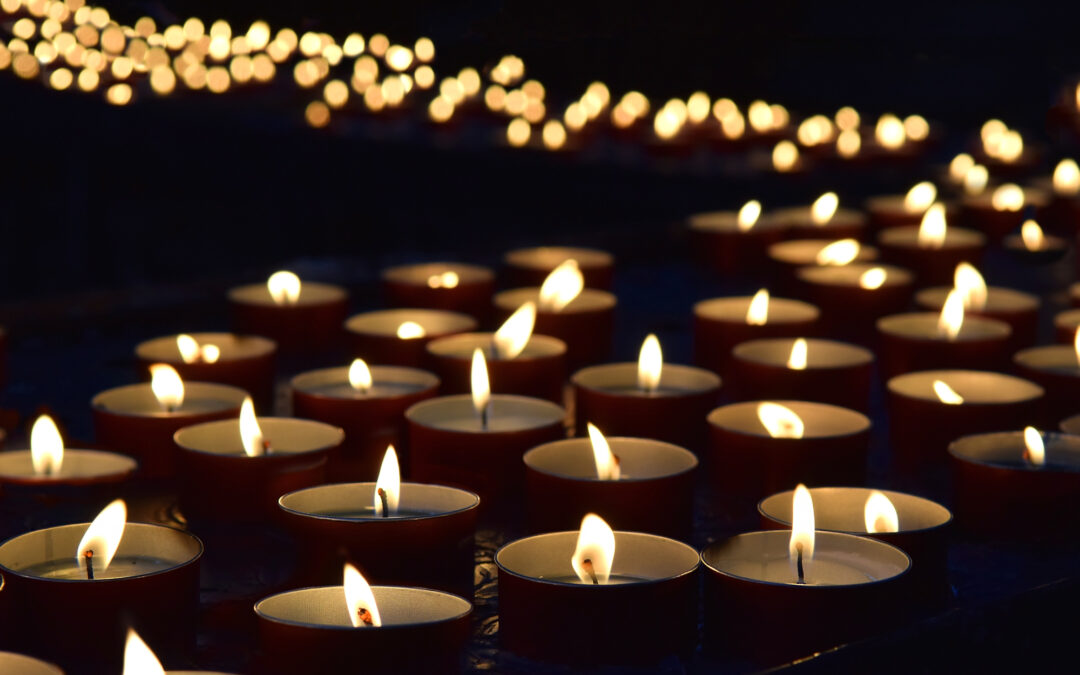Mourning during Purim | Ways to Honor Deceased Loved Ones
The Jewish celebration of Purim, or the Festival of Lots, is typically one of the most festive and joyous holidays on the Jewish calendar, with parades, costumes, gifts of Purim baskets and a great feast. But Purim also pays tribute to the protection of an entire Jewish community from slaughter at the hands of the Persians some seven thousand years ago, so it seems appropriate that Purim may include traditions that pay respect to your loved ones who have died. How does Purim affect mourning practices? What can you do during Purim to honor deceased family members?
The Impact of Purim on Jewish Mourning Practices
Under Jewish tradition, the funeral and burial of a loved one are solemn events, with a number of specific rituals as a part of the custom, including sitting shiva. Shiva, from the Hebrew for “seven,” involves a seven-day period of mourning where family members stay home, where daily prayers are recited, and where other customs of solemnity are followed. As a general rule, persons sitting shiva must refrain from participating in joyous events.
Because Purim is primarily a festival that encourages joyful behavior, anyone sitting shiva should opt not to participate in aspects of the holiday that express that joy. However, because Purim is not considered one of the high holy days, there is typically no need to postpone shiva. In fact, some rabbis suggest that mourners should still honor many of the Purim traditions, including the giving of gifts to friends and money to the poor, participation in a scaled-down Purim meal, and listening to the reading of the Megillah scroll. Those visiting people who are sitting shiva during Purim should not give gifts of food to mourners, but may do so with mourner’s families. If you are in doubt as to what you should do if you have shiva scheduled during Purim, consult your rabbi.
Ways that You Can Honor the Memory of a Loved One during Purim
Simply because it’s a time of celebration does not mean that you can’t do things during Purim that commemorate deceased loved ones. In fact, the celebratory nature of Purim can lead you to celebrate the life of a beloved family member. You may choose to light candles, say special prayers or simply take time every day to quietly reflect on your loved ones and the role that they played in your life. It’s a perfect time to make a donation in their names to your synagogue, a hospital or hospice, or another charity that was meaningful to them.
Purim is also the perfect time to have your loved one’s name inscribed in the book of life. Customarily, that’s done with the lighting of a candle, the planting of a tree in Israel or the dedication of a name plaque. You may choose Purim as a time to place a monument at the grave of your loved one or set up a Yahrzeit calendar.
Gutterman’s—Funeral and Burial Services for the Jewish Communities in New York and Florida
At Gutterman’s, we have provided comprehensive funeral and burial services to members of the Jewish community for more than 125 years, serving individuals and families in New York and Florida. We fully u understand Jewish customs, as well as the differences among the various Jewish traditions. We will advise and assist you throughout the funeral and burial process, helping you with the order of service, as well as the purchase of monuments or coffins, with preparation for Shiva or the creation and implementation of a Yahrzeit calendar. We can help you pre-plan a New York or Florida funeral or help family members put together an obituary.
At Gutterman’s, we recognize the serious health risk that the coronavirus pandemic poses and we understand the key role that a funeral and burial play in the personal grieving process. While we strictly adhere to all recommended guidelines from state and federal public health officials, we will still work closely with you to try to find ways to pay respect to your loved ones, honor your traditions and keep safe. For a statement of the safety measures currently in place at our chapels, go to our website.
To get answers to any of your questions about a funeral or burial service, contact us online or call us at one of the numbers listed below. During the pandemic, we are available by phone, text message or videoconferencing. We will take your call 24 hours a day, 7 days a week.

